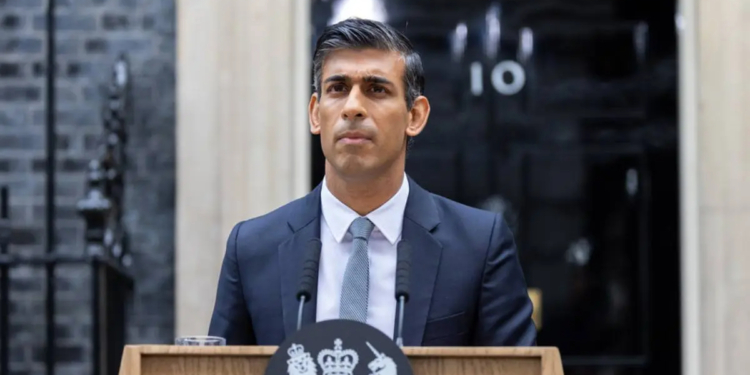- The UK introduces stringent visa measures, increasing minimum salary for skilled job entrants by one-third, aiming to curb net migration
- Backlash ensues from businesses and unions, citing potential challenges for the private sector and health service facing labour shortages
To address soaring net migration figures, the United Kingdom has introduced stringent visa measures, significantly increasing the minimum salary requirements for skilled job entrants by one-third. The move comes amidst growing pressure on Prime Minister Rishi Sunak to tackle record levels of net migration, a pivotal issue in the political landscape since the 2016 Brexit vote.
High levels of legal migration have shaped Britain’s political discourse for over a decade, prompting Sunak to pledge enhanced control amid criticism from his Conservative Party members. With an election looming next year and the Labour Party leading in polls, Sunak aims to address migration concerns.
However, the measures have faced backlash from businesses and trade unions, citing potential challenges for the private sector and the state-run health service already grappling with labour shortages.
Recent figures revealed a record annual net migration of 745,000 in 2022, with migrants increasingly hailing from countries like India, Nigeria, and China instead of the European Union.
Home Secretary James Cleverly asserted that the new measures could reduce net migration by 300,000, emphasizing the government’s commitment to curbing what Sunak called “too high” immigration. The minimum salary threshold for foreign skilled workers will rise to £38,700 ($48,900) from its current £26,200, with exemptions for health and social workers.
Additional measures include barring foreign health workers from bringing in family members on their visas, a 66% increase in the health service usage surcharge paid by migrants, and an elevation of the minimum income for family visas.
Critics argue that these measures may fuel disputes with businesses struggling to hire due to the persistently tight labour market and the end of free movement from the EU since 2020.
Cleverly addressed concerns about salary undercutting, revealing plans to abolish the current system that allows employers to pay migrants 80% of the standard rate for jobs facing worker shortages. A review of the shortage occupations list and creating a new immigration salary list are also on the agenda.
However, scepticism persists, with some studies suggesting foreign workers have minimal impact on overall wages and employment levels. Persistent skills shortages in specific sectors remain a challenge, as noted by the Bank of England last month.
Trade unions, including UNISON, voiced concerns, with general secretary Christina McAnea labelling the plan a “total disaster” for the health service. Critics argue that these changes risk shrinking the talent pool and worsening shortages faced by businesses, emphasizing the need for an immigration system aligned with both business needs and the labour market.










Discussion about this post